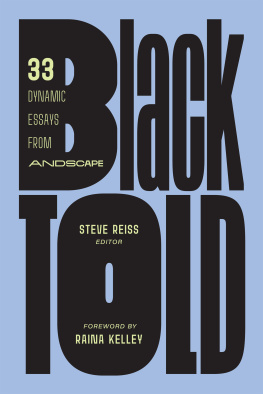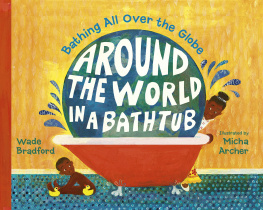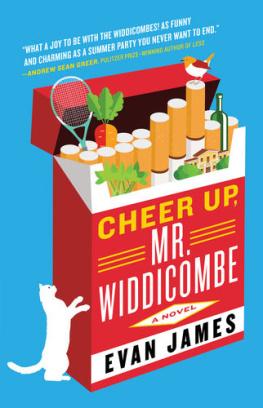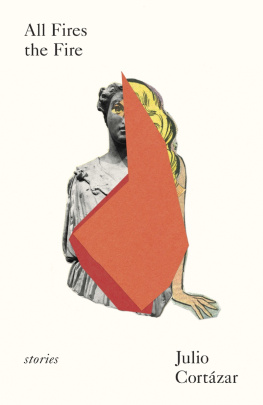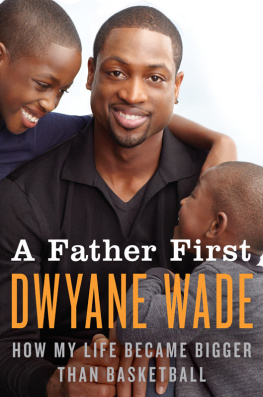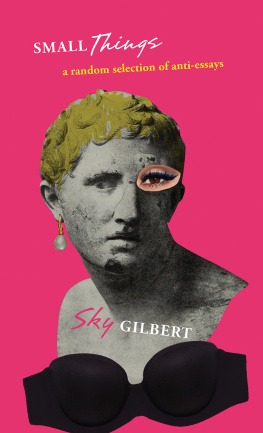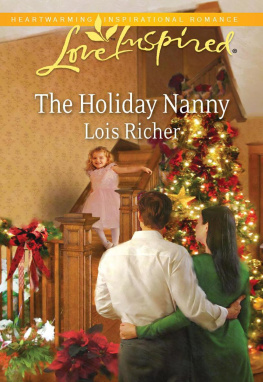Keepsake
Iask my grandmother what she will contribute to our time capsule. The year is 1989, and Joy, Alicia, and I have resolved to commemorate the passing of our first decade. After many long hours scouting the neighborhood, we have even agreed on a placePine Cone Islanda plot of land perfectly centralized, walking distance from our respective houses, wild and grassy where neighbor boys play ball, but with a cozy corner inlet of hunkering pines and soft soil ideal for digging.
Grandma June has been around a long time. She was born in 1911, which means she has nearly reached her eighth decade. Fauntlee Hills, where she has lived since 1953, is a beautiful, tiered community built on bluffs overlooking Puget Sound. The uniform brick houses, with their varying views of the sea, are primarily occupied by first-generation residents. Not first generation in the U.S. per sethough my grandmother is, eighth child of Swedish immigrant parentsbut first generation in this historic neighborhood, its 1950s cocoon of widowed women whose children have grown up to leave them, whose husbands have long since passed away.
Do women always live longer than men? I ask.
Not always, but often, she replies. Grandma is wrapped in her shawl, blouse-sleeves tucked with tissues and a crossword puzzle in hand.
Why is that, Grandma?thinking of Mrs. Niemi, who is still Mrs. Niemi, even though her husband disappeared into death three years ago. And Mrs. Rothman, and Mrs. Kaufman, and Mrs. Berg.
I dont rightly know, comes her patient reply. Maybe were just less willing to go.
I wonder why my grandfather went and what he would have put in my capsule. Probably a hymn book, she tells me, because your grandpa loved to sing so much. He was a tenor in the Phinney Ridge Lutheran Church choir.
But what about you? I sit beside her at the ancient oak table, legs swinging but because I am tall, my tennis shoes scrape on the floor.
Well, thats a hard question, my grandmother says. What I love best I like to keep with me.
Recently, at my schools roller-skating party, I have commenced a secret romance. The boy I think I love, whose mother wears glossy lip paint and a cream sweater with creased peach pants and matching starched peach collar, does not attend; his family ice-skates on Saturdays, and Erich has no intention of trading his blades for wheels. I dont know Lee Bennetts mother since he walks to school with only his older brother. They are both big for their age, tall and filled out across the chest and shoulders, Lee sporting his first dark whiskers along his cheeks and chin, Ryan buying cigarettes easily at thirteen. But when I think of Erich, I see his mother clearly. She is blond and fair-complected, a teacup of a woman with dainty features and a pleasant, docile wave. I want him to invite me over to play Jenga and Pictionary, but mostly so we can eat cheese sandwiches on white triangles of bread, which I am certain his mother takes great care to cut the crusts from, placing a crisp pickle alongside and pouring a cold glass of milk from a brand-name bottle.
Whats your mothers name? I ask Lee as we lace fingers for our first-ever couples skate. The lights are dimming now; strobes of red and blue cast dizzy shapes across the floor.
Rosemary, he says. Why?
I adore her name at once, conjuring the image of a stone cottage in the woods with a chimney stolidly puffing. Ivy winds around the curtain-clad windows, and this herb called rosemary , which I have never seen, blooms in tiny baskets on each ledge.
No reasonthough I think I can love him now, having determined that he comes from good people.
Lee and I begin to see more of each other. At recess, we walk the playgrounds perimeter, hand in hand, and I take a certain pleasure in the jealousy our love provokes in others. Sometimes I can hardly hear what he is saying as I watch the swiveling of heads, the shifting hips of bodies, the girls who call me freak and four eyes suddenly covetous of what I have. This must be commemorated. I am not so nave as to believe that Lee and I can last forever, but the memory of us must somehow be preserved.
On little squares of steno paper, I write him love notes. You are more exquisite than a common loon. I long for you like a mustard seed for rain. Drawing from our class project on John James Audubon and parables turned rote in Bible school, I craft my images, draft my devotion to the boy whose mysterious mother has come to haunt my dreams.
He reciprocates: My desk is infested with your poems, and I love them! Your head is as big and round as the sun, your eyes like x-ray vision into my heart.
I smuggle Lees letters home inside my parkas zip-out lining. My mother must never discover them, which means late at night I bury these scraps under the Raggedy Ann ceramic planter that sits, replete with artificial flowers, on my windowsill. Evidence accumulates; I will need a shoe box soon.
In the afternoons on Vashon View Street, Joy and I sit outside ogling the islands. I ask how her time capsule collection is coming along, and she beams with pride. Her toy box is nearly full.
But how are we going to bury something that big?
Ill have to be selective, she sighs.
After a while, we climb down from the deck and scurry to her backyards edge, where blackberry bushes thicken and rise and even the bravest dogs wont venture. Its weatherproof, she says, pointing to the sticker as she pops off the green and yellow plastic lid. Camouflaged, too.
Inside we find a miracle of things.
Where did you get these? I exclaim, incredulous, the forbidden glee of close to forty liquor bottles, piled in careful crosshatch and clinking softly.
Well, you know Erna Hunt who lives next door?
I shake my head. Not really.
My father always calls her an old drunk, and its true. When shes been drinking, she comes outside in her bathrobe and screams at her husband in German. Joy leans in close for the juicy gossip, and quoting her mother, recitesHes kind of a shit you know, what with the other women and all. Then, with a flash of her clear blue eyes: I figured her trash would tell an interesting tale.
Together Joy and I catalogue the beers and wines in our time capsule ledger, then more attentively the ominously clear bottles. Mrs. Hunt, we notice, seems to have a particular penchant for someone called Mr. Jim Beam.
And she says her husbands the one being unfaithful, Joy smirks. Feeling grown-up and very hush-hush, we do our best to nod and not to laugh.
I realize early on that I have a problem with sharing. Not any essential thing, like food from my lunchbox or toiletries at camp, and anyone who wants can take a sip from my straw. But books I dont like sharing, so I dont understand the library with its Q-cards and barcodes and days when things are due. I resent them, the way I resent the curly-haired librarian with the tight mouth who chides me for talking too loud.


